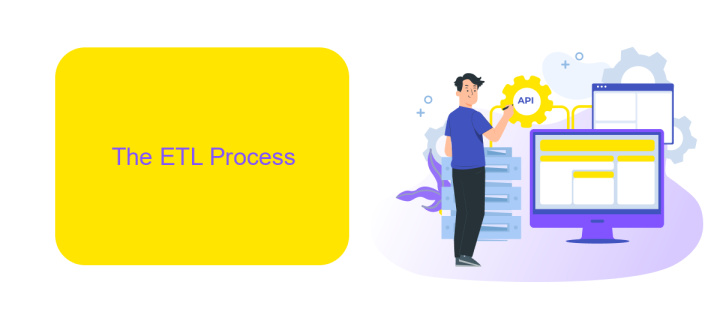What is ETL in Data
ETL, which stands for Extract, Transform, Load, is a critical process in the field of data management and analytics. It involves extracting data from various sources, transforming it into a suitable format or structure, and loading it into a target database or data warehouse. This process ensures that data is accurate, consistent, and ready for analysis, supporting informed decision-making.
Introduction to ETL
ETL stands for Extract, Transform, Load, and it is a fundamental process in data management and integration. ETL allows organizations to gather data from various sources, transform it into a suitable format, and load it into a target system for analysis and reporting. This process is essential for making data-driven decisions and maintaining data consistency across different platforms.
- Extract: Collecting data from multiple sources such as databases, APIs, and flat files.
- Transform: Converting the extracted data into a suitable format, including cleaning, filtering, and aggregating data.
- Load: Loading the transformed data into a target system, such as a data warehouse or a business intelligence tool.
One of the tools that can simplify the ETL process is ApiX-Drive. It allows users to automate data integration between various applications and services, reducing the need for manual data handling. By leveraging such tools, organizations can streamline their data workflows and ensure that their data is always up-to-date and accurate.
The ETL Process

The ETL process, which stands for Extract, Transform, Load, is a critical procedure in data management and analytics. During the extraction phase, data is collected from various sources such as databases, APIs, and flat files. This raw data is often unstructured and needs to be refined before it can be useful. The transformation stage involves cleaning, normalizing, and enriching the extracted data. This step ensures that the data adheres to a consistent format and meets the quality standards required for analysis.
Once the data has been transformed, it is then loaded into a target system, such as a data warehouse or a business intelligence platform, where it can be accessed for reporting and analysis. Tools like ApiX-Drive can simplify the ETL process by automating the integration of data from multiple sources, reducing the need for manual intervention and minimizing errors. By leveraging such services, organizations can streamline their data workflows and focus more on deriving actionable insights from their data.
Benefits of ETL

ETL (Extract, Transform, Load) is a critical process in data management that offers numerous advantages for organizations. By automating data integration and transformation, ETL enhances data accuracy and consistency, ensuring that decision-makers have access to reliable information.
- Improved Data Quality: ETL processes clean and standardize data, reducing errors and inconsistencies.
- Time Efficiency: Automating data extraction, transformation, and loading saves valuable time and resources.
- Scalability: ETL systems can handle large volumes of data, making it easier to scale operations as business needs grow.
- Better Decision-Making: With accurate and timely data, organizations can make more informed decisions.
- Seamless Integration: Tools like ApiX-Drive simplify the integration of various data sources, enhancing the ETL process.
Utilizing ETL processes enables organizations to maintain high-quality data while optimizing their workflows. Services like ApiX-Drive further streamline data integration, making it easier to connect disparate systems and ensure seamless data flow.
Challenges of ETL

ETL (Extract, Transform, Load) processes are integral to data management, but they come with their own set of challenges. One of the primary issues is data quality. Ensuring that the data extracted from various sources is accurate, consistent, and complete is crucial, yet often difficult to achieve.
Another significant challenge is managing data transformation. This step requires converting data into a format suitable for analysis, which can be complex due to differing data types and structures. Additionally, performance bottlenecks can occur during the transformation and loading stages, impacting overall system efficiency.
- Data Quality: Ensuring accuracy, consistency, and completeness
- Data Transformation: Converting data into a usable format
- Performance Bottlenecks: Managing system efficiency
- Integration Complexity: Handling diverse data sources
Integration complexity is another hurdle, as ETL processes often involve multiple data sources with varying formats. Tools like ApiX-Drive can simplify this by automating data integration, reducing manual effort and errors. By addressing these challenges, organizations can better leverage their data for informed decision-making.
- Automate the work of an online store or landing
- Empower through integration
- Don't spend money on programmers and integrators
- Save time by automating routine tasks
Conclusion
In conclusion, ETL (Extract, Transform, Load) is a fundamental process in the realm of data management and analytics. It enables organizations to consolidate data from multiple sources, transform it into a usable format, and load it into a data warehouse or other storage systems. This process not only ensures data consistency and accuracy but also enhances the efficiency of data analysis and reporting. By leveraging ETL, businesses can make more informed decisions, streamline operations, and gain a competitive edge in the market.
Moreover, modern ETL solutions, such as ApiX-Drive, simplify the integration and automation of data workflows. ApiX-Drive offers a user-friendly platform that allows seamless data transfer between various applications and services without the need for extensive coding. This empowers businesses to focus on data-driven strategies rather than the complexities of data integration. As data continues to grow in volume and complexity, adopting robust ETL processes and tools will be crucial for maintaining data integrity and driving business success.
FAQ
What is ETL in Data?
Why is ETL important?
What are the main steps involved in the ETL process?
How can ETL processes be automated?
What are some common challenges in ETL processes?
Apix-Drive is a simple and efficient system connector that will help you automate routine tasks and optimize business processes. You can save time and money, direct these resources to more important purposes. Test ApiX-Drive and make sure that this tool will relieve your employees and after 5 minutes of settings your business will start working faster.


